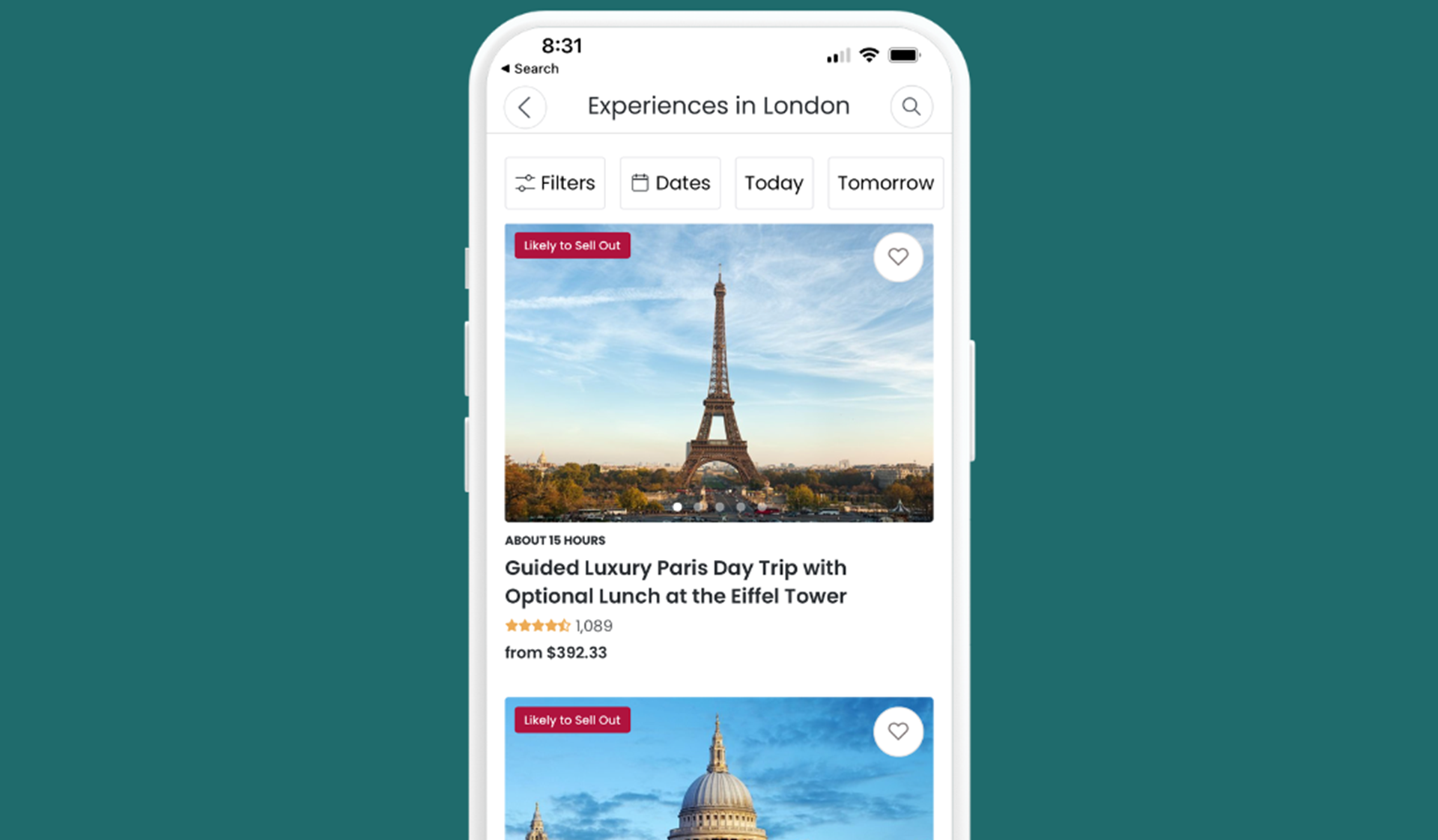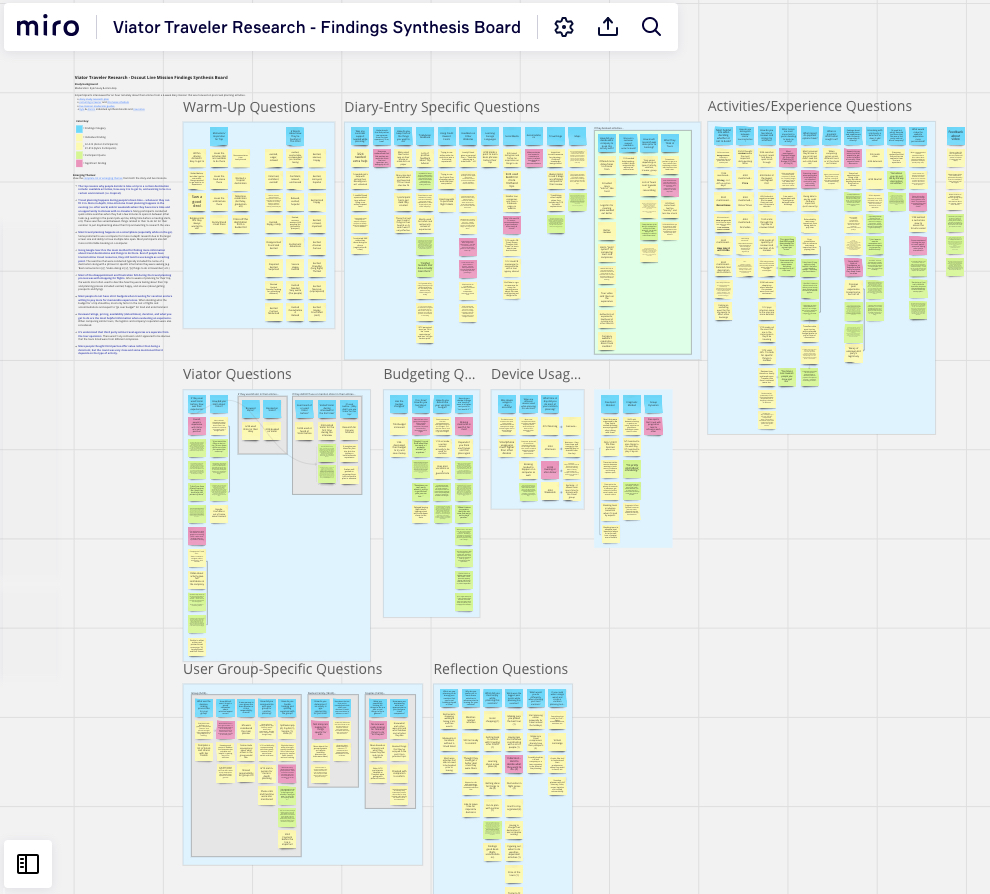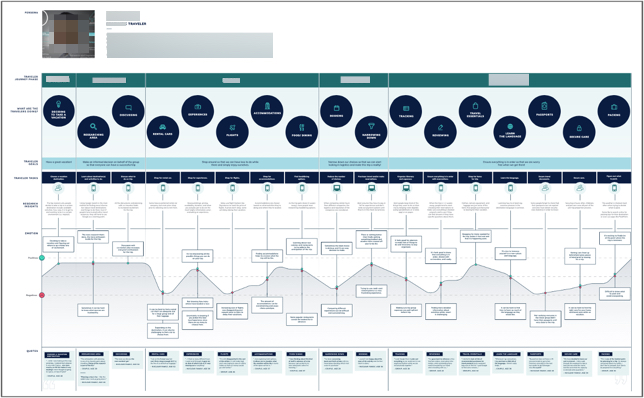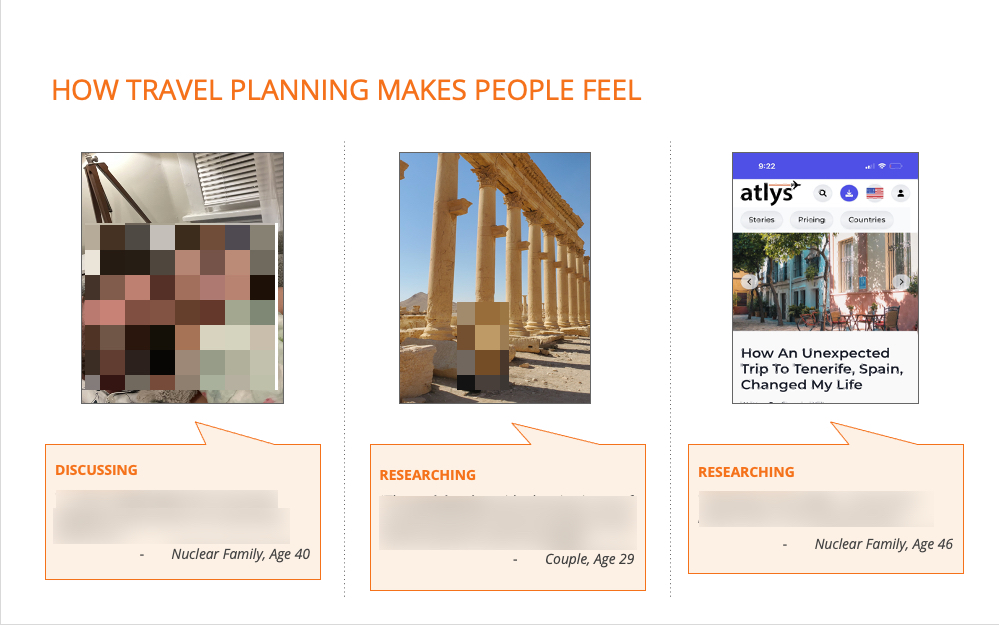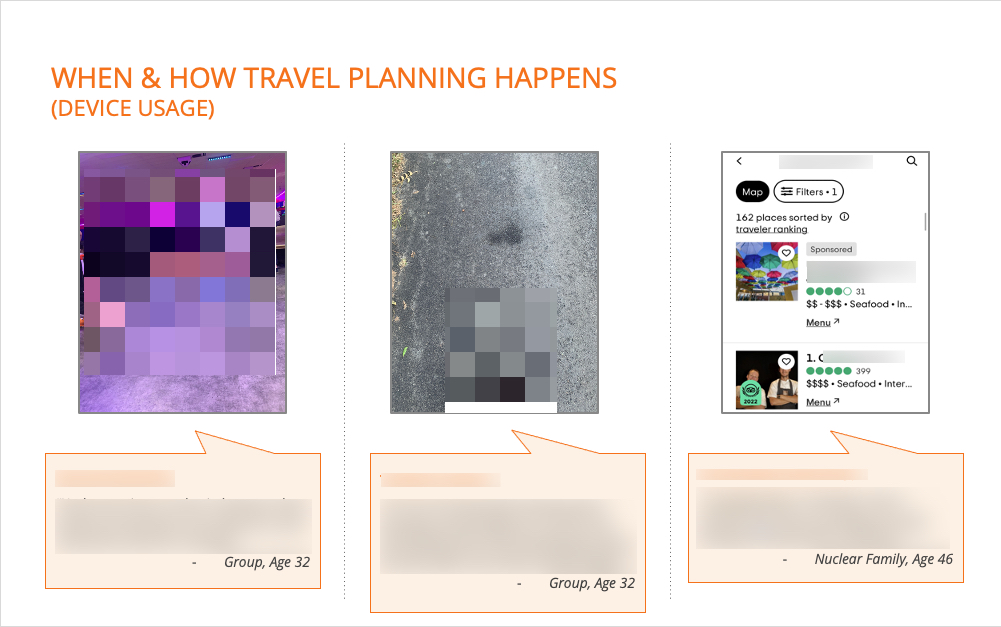
Case Study
Viator, a TripAdvisor Company
Competencies
Longitudinal User Research Remote Interviewing Diary Study Journey MappingViator makes it easy to find and book travel experiences all across the globe. Their app has over 300,000 experiences to choose from. Viator is a Tripadvisor company and was acquired by them in 2014.
Project Goals
- Learn what activities are involved when planning a vacation, when and how travelers choose to complete these activities, and how they feel while doing them
- Understand what factors impact a traveler’s decisions when making their travel plans
- Discover what resources travelers use when planning a trip and why
- Learn if/how they utilize other traveler reviews
- Discover if they have a need for customer support in order to complete any of their travel planning activities and, if so, why?
Methodology
-
Conduct a 6-week diary study with 30 participants
-
Participants included people who were planning to take a 1-2 week vacation to a new destination during a certain time of year
-
Conduct follow-up interviews with participants
-
Use the Dscout platform to recruit, capture the diary entries, and conduct the follow-up interviews
Media
Project Kick-off
Viator has a brilliant team of researchers that conducted a tremendous amount of research over the years with travelers. The first step in scoping and defining the objectives for this study was to conduct a thorough review of all the relevant research that had been conducted and identify what knowledge gaps existed. Once the previous research was reviewed, Usable Interface worked with the stakeholders of this project to define the research goals and craft a diary study that would provide the needed feedback from travelers to help fill those gaps.
Diary Study
One of the best ways to collect qualitative data about user behaviors, activities, and experiences over time is through a diary study. For this reason, we decided to follow 30 travelers for 6 weeks through their diary entries. Participants were asked to submit diary entries as they occur, whenever they partake in an activity related to planning for their upcoming travel.
Diary entries included:
-
Survey answers to closed & open-ended questions
-
Screen recordings
-
Photos
-
Selfie videos
Remote Interviewing
For this study, we conducted follow-up interviews with 24/30 participants. Each participant’s diary was reviewed prior to the interview so we could ask additional questions about anything that was confusing or piqued our interests. Each interview was 60 minutes in duration and conducted remotely.
Challenges
By far, the biggest challenge with this study was staying on top of the enormous amount of data that was coming in daily. Another challenge was keeping the participants engaged for the entire 6 weeks so we didn't end up with a lot of drop outs. To meet these challenges, we made sure to code all diary entries at the end of each day and to send an acknowledgement to each participant after they submitted something. Friendly reminders would also be sent to participants if we haven't heard from them for three consecutive days. Lastly, we made sure to send interesting highlights to the stakeholders throughout the course of the study to keep them engaged as well.
Project Completion
After 6 weeks, we collected and reviewed 474 diary entries. Only 3 participants dropped out of the study; 2 after the first week and 1 halfway through. All the entries were coded using a tagging system to identify everything from feelings to actions taken. We ended up with 1,810 snippets of coded data!
The diary study provided invaluable insight into how travelers prepare to take trips. The best part was that it was able to capture these moments live as it’s happening and not just in response to a prompt. The findings from this study were able to validate some previous findings as well as fill in the gaps that were identified in our research goals.
A journey map capturing a traveler’s pre-travel planning activities, goals, emotions, as well as key research insights and quotes was created. At the end of the project, Usable Interface presented the key findings from the study and the journey map to the UX and Design teams for Viator.
